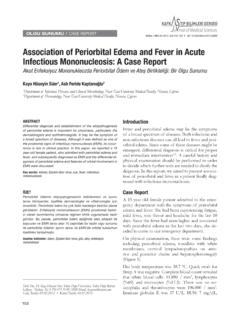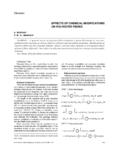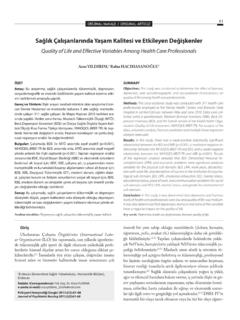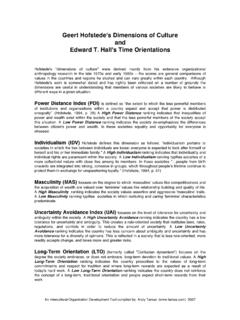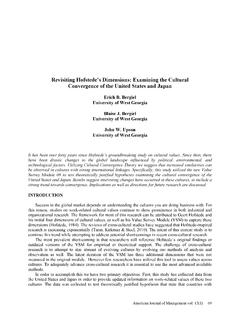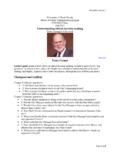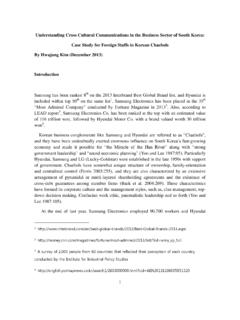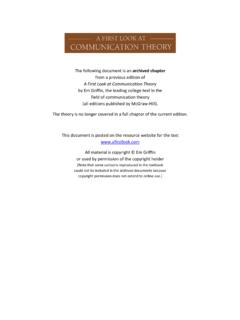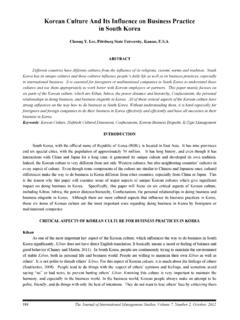Transcription of INTERNATIONAL HUMAN RESOURCE …
1 INTERNATIONAL HUMAN RESOURCE management AND NATIONAL cultural CHALLENGESO sman ERO LU*AbstractA number of researchers have investigated the role of and importance of national culture on INTERNATIONAL HUMAN RESOURCE management and it is named as the major challenge that HUMAN RESOURCE management should be aware of when going global to achieve its organizational goals. Getting individuals from different ethnic backgrounds working together may be difficult in some parts of the world and INTERNATIONAL HUMAN RESOURCE management professionals should be aware of this cultural difficulty. This paper studies the influence of national cultural challenges on INTERNATIONAL HUMAN RESOURCE management which is investigated commonly by Hofstede s cultural dimensions, achievement motivation theory, equity theory, expectancy theory, job design, work centrality, and Words: INTERNATIONAL HUMAN RESOURCE management , National Culture and cultural NSAN KAYNAKLARI Y NET M VE ULUSAL K LT REL ZORLUKLAR zetBir k s m ara t rmac lar taraf ndan uluslararas insan kaynaklar y netimindeki rol ve nemi ara t r lan ulusal k lt r n.
2 Uluslararas alanda rg tsel hedeflere ula lmas nda fark nda olunmas gereken nemli bir sorun olarak adland r lm t r. Uluslararas insan kaynaklar y netimi d nyan n farkl lkelerindeki uygulamalar nda farkl etnik k kenlerden gelen ki ilerin birlikte al mas ile olu an k lt rel zorlu un fark na varmal d r. Bu al mada, Hofstede'nin geli tirdi i k lt rel boyutlar kavram n n yan s ra; motivasyon teorisi, e itlik teorisi, beklenti teorisi, i tasar m , i merkezili i, ve d ller kavramlar n n uluslararas insan kaynaklar y netimi zerindeki etkisi incelemi Kelimeler: Uluslararas nsan Kaynaklar Y netimi, Ulusal K lt r ve K lt rel niversitesi Sosyal Bilimler Enstit s DergisiSay 19, 2014, Sayfa 91-102*.
3 Dr., Mardin Artuklu niversitesi, Sa l k Hizmetleri MYO, T bbi Tan t m ve Pazarlama B l m , MARD N. e-posta: INTRODUCTIONMore effective management of HUMAN resources is increasingly being seen as positively affecting performance in most of organizations, as a result of dramatic increases in INTERNATIONAL activity in the past decade have raised attention on the management of HUMAN resources in firms operating across borders. In addition, INTERNATIONAL HUMAN RESOURCE management differs from domestic HRM and it is more difficult than domestic HRM because of macro environmental factors such as cultural , socioeconomic and political.
4 This contingency perspective of the practice culture fit model emphasizes that cultural context is important to explain the consequences of HUMAN resources management (Chow vd., 2008; Wang. vd, 2011). Managing HUMAN resources in different cultures, economies, and legal systems presents some challenges. HR professionals find that their nationality, training and experience lead them to make assumptions that are cultural based (Hofstede, 1991). For instance, in Asia and the Middle East, employees often readily accept inequitable treatment in order to preserve group harmony. Additionally, in countries like Japan and Korea, men and women typically receive different pay for doing the same work, yet because of years of cultural conditioning these women may not feel they are being O.
5 Ero lu92 Pamukkale University Journal of Social Sciences Institute, Number 19, 2014treated inequitably (Park & Suziki, 1990). Differences in cultural expectations can be particularly frustrating for women, who may not be considered appropriate for senior or professional level positions by the senior management of an INTERNATIONAL employer (Golesorkhi, 1991). Other researchers found that the greater the cultural differences are the more decentralized approach for rapid and customized responses will be (Boyacigiller, 1990). Complex local customs and laws also favor a decentralized approach, allowing the local HR department to adapt its policies and practices to local realities (Correy, 1991).
6 The increasing internationalization and globalization of business makes it more pressing than ever to understand how to establish HRM procedures that can deal with considerable cultural and national differences. A number of INTERNATIONAL researchers have investigated the role of and importance of national culture on HUMAN RESOURCE management and it is named the major challenge that HUMAN RESOURCE management should be aware when going global to achieve its organizational goals. This paper studies the influence of cultural challenges on INTERNATIONAL HUMAN RESOURCE management .
7 HUMAN RESOURCE MANAGEMENTH uman RESOURCE management has been identified as a potentially powerful strategic tool that helps firms formulate and implement their business strategies and further improve their performance (Lengnick-Hall & Lengnick-Hall., 1988; Schuler & Jackson, 1987; Taylor vd., 1996). HUMAN Resources are usually considered as one of the most valuable assets in an organization, but only a few organizations generate real benefit out of this RESOURCE (Preffer, 1998). HUMAN resources and HR techniques are considered to generate and sustain competitive advantage in the increasingly globalized market because they are not easily and quickly replicated or imitated by competitors (Barney, 1991).
8 However, a growing body of empirical research has found that HRM aligned with cultural and other contextual factors arising from the global operating environment of MNCs (Ahmed & Schroeder, 2003). In particular, INTERNATIONAL HUMAN RESOURCE management has been increasingly considered a key differentiating factor between the winners and losers in MNCs since the 1990 s (Schuler vd., 1987; Taylor vd., 1996). Shen (2005:83) explains INTERNATIONAL HUMAN RESOURCE management in terms of a system: a set of distinct activities, functions and processes that are directed at attracting, developing, and maintaining the HUMAN resources of a multi-national corporation.
9 In addition, different countries and nations, cultural values and attitudes influence HRM practices in organizations (Tayeb, 2005; Sparrow & Wu, 1998). Differences in approaches to HRM would most likely be the result of the interconnection between the culture and structure of a particular society (Claus, 2003). Issues to do with the diversity of the workforce are becoming increasingly important in HRM (Mayrhofer & Larsen, 2006; Choy, 2007). The issues at the societal level specifically relate to the changing nature of the workforce. Increasing numbers of women are entering the labour market, ethnic minorities will be forming an increasing part of the workforce and the working population is aging (Linehan & Hanappi, 2006).
10 It has been noted that few organizations know how to manage HR effectively in a dynamic INTERNATIONAL environment because best practices in one context do not always translate to other contexts with differing socio-economic conditions and cultures (Chilton, 1993). National culture has become a major concern for INTERNATIONAL HUMAN RESOURCE NATIONAL CULTUREThe concept of national culture has received considerable attention in the general management literature. National culture is defined as the values, beliefs and assumptions learned in early childhood that distinguish one group of people from another (Beck & Moore 1985; Hofstede, 1991).



